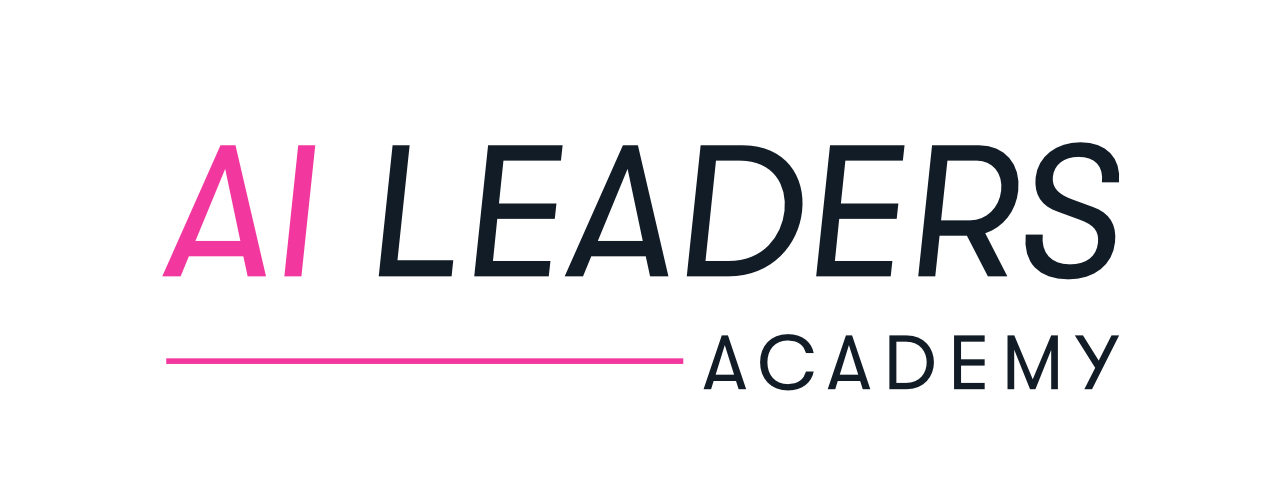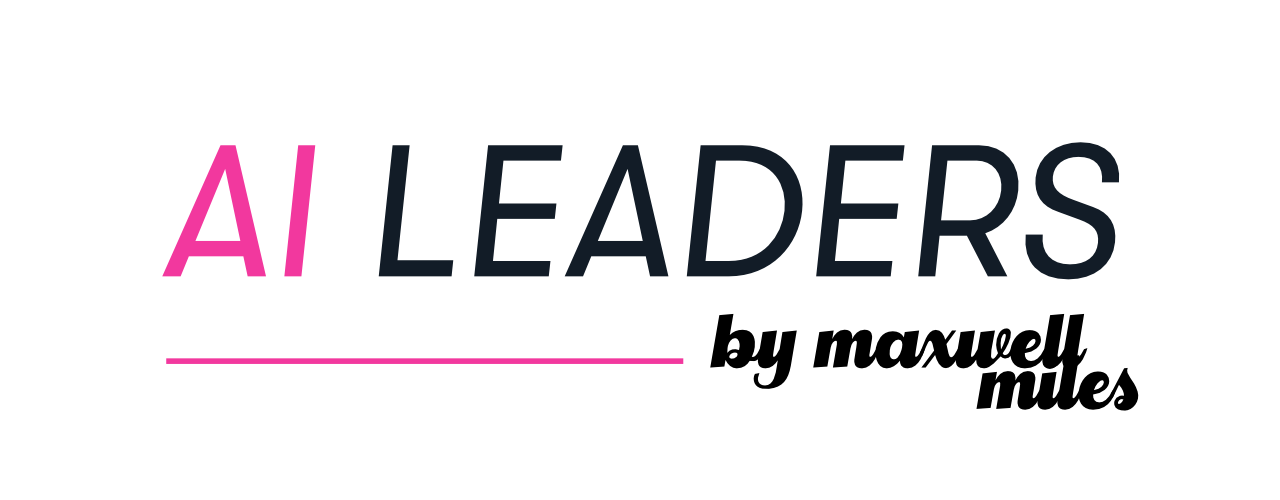Apr 15
/
Richard Maxwell
Emerging AI Skills That Can Enhance Your Professional Value
The AI Skills Gap Is Growing—And So Are the Opportunities
The business world is rapidly transforming as artificial intelligence becomes integrated into virtually every industry. This represents perhaps the most significant change to how we work since the Industrial Revolution—a shift that places new demands on professionals at all levels.
Amidst this transformation, organisations are discovering that technical AI expertise alone isn't enough. They desperately need individuals who understand both the human and technological dimensions of AI—professionals who can guide implementation in ways that empower people rather than alienate them.
This skills shortage presents a significant opportunity.
Industry observers and hiring managers consistently report that professionals with AI capabilities are in high demand across sectors. More importantly, these skills provide a degree of future-proofing for your career that few other competencies can match.But which AI skills are truly valuable for business professionals? The answer isn't primarily technical—it's about developing capabilities that bridge human needs with technological possibilities.
Write your awesome label here.
About the Author
Richard Maxwell
Richard has spent 25+ years in business and at top consultancies guiding boards and C-suite leaders through disruptive technology and business-strategy shifts. He has trained more than 100,000 mid-career professionals on AI adoption in business and career agility, and he regularly partners with leadership and HR teams to forecast the skills and capabilities their organisations will need next.
Why AI Skills Matter for Every Professional
Before exploring the specific skills that can enhance your professional value, let's examine why developing AI literacy directly benefits your career regardless of your business function:
Enhance Your Decision-Making
By combining your expertise with AI's data processing capabilities, you'll make better decisions faster than colleagues who rely on either alone.
Future-Proof
Your Role
As routine tasks become automated, developing AI skills helps you evolve your position toward higher-value work that showcases your uniquely human strengths.
Become More Influential
When you can translate between technical possibilities and business needs, you'll gain influence in strategic conversations about your organisation's future.
Earn Leadership
Trust
Understanding AI ethics enables you to guide responsible implementation, making you a trusted advisor when leadership navigates complex technological choices.
Lead Through
Change
As teams struggle with technological uncertainty, your balanced understanding of AI will position you as a calm, credible voice helping others adapt confidently.
These skills directly enhance your professional value, making you more effective today while positioning you for advancement as AI becomes increasingly central to business operations.
Five Key AI Skills Every Business Professional Needs
1. AI Literacy and Conceptual Understanding
The foundation of working effectively with AI is understanding what these technologies can and cannot do in business contexts.
What it involves
Understanding the fundamental concepts, capabilities, and limitations of different AI approaches without necessarily being able to build them yourself.
Its business value
This foundational knowledge allows you to identify appropriate AI applications for business challenges and maintain realistic expectations about what AI can achieve.
How to develop it
Start building your foundational AI knowledge through these approachable methods that don't require technical expertise:
-
Take introductory courses on AI concepts designed for business professionals
-
Read case studies of AI implementations in your industry
-
Follow reputable AI news sources that explain developments in business-friendly terms
-
Join industry groups where AI applications are discussed
2. Prompt Engineering
Prompt engineering is the art and science of crafting effective instructions for AI systems to get the most useful, relevant outputs for your business needs.
What it involves
The ability to effectively communicate with AI systems, particularly large language models, to achieve desired outputs.
Its business value
Prompt engineering helps you extract maximum value from AI assistants, enabling more efficient content creation, data analysis, and problem-solving.
How to develop it
Anyone can become proficient at prompt engineering through deliberate practice and experimentation with these approaches:
-
Experiment systematically with different prompting techniques
-
Learn the principles of effective prompts: specificity, context-setting, and iterative refinement
-
Create template prompts for recurring business tasks
-
Study prompt engineering guides provided by AI platform developers
3. AI-Enhanced Analytics
This skill transforms your relationship with data by enabling you to extract meaningful insights without programming or statistical expertise.
What it involves
Using AI tools to derive insights from data without advanced statistics or programming skills.
Business value
Business professionals who can leverage AI for data analysis make more informed decisions and can more effectively measure performance.
How to develop it
AI-enhanced analytics is now accessible to everyone, not just data scientists, thanks to tools that understand normal business language. Here are some use cases that AI-powered tools can help you with in an ad hoc way:
Have conversations with your data
When you need to quickly identify top performers in your sales data, ask Excel with Copilot questions like "What were our top 3 performing regions last quarter?"
Spot trends
For spotting trends across quarters or identifying unusual patterns in your metrics, you can use Google Sheets with Gemini to generate insights without complex formulas
Get a second opinion
To get a second opinion on customer feedback or survey results, paste your data into ChatGPT or Claude and ask "What patterns do you see in these customer satisfaction scores?"
Get help with EXCEL formulas
When you're struggling with complex spreadsheet formulas, Numerous.ai lets you create them using plain English instead of technical syntax
WOrk across data sets
If you're trying to make sense of data scattered across multiple sources, Rows.com allows you to combine and analyze it using simple language commands
Some practical steps you can take to develop the skills to get AI to help you in this way are:
-
Choose a chat-based product, like ChatGPT, Google Gemini or Claude
-
Start experimenting with a small, non-sensitive dataset you're familiar with
-
Practice asking clear questions (e.g., "Show me sales trends by month" rather than "Analyze this data")
-
Compare AI-generated insights with your own understanding to build critical judgment
-
Gradually apply these tools to more complex business questions as your confidence grows
Note: Protecting sensitive information must be your priority when using these tools. Always check your company's data policies before analyzing business information with AI, and whenever possible, remove identifying details from your datasets. For confidential information, prefer built-in workplace tools like Excel Copilot rather than external services. Remember that many AI platforms store queries to improve their systems—what you upload may be retained—so exercise caution with proprietary or sensitive business data.
4. AI Change Leadership and Cultural Transformation
This critical skill bridges the technical and human aspects of AI adoption, focusing on bringing people along rather than simply implementing technology.
What it involves
The ability to guide teams and organisations through AI-driven workplace transformation, addressing human concerns, resistance, and adaptation needs.
Business value
AI represents the most significant workplace disruption in a century. Professionals who can navigate the human aspects of this change are invaluable in ensuring successful adoption and minimising resistance.
How to develop it
Change leadership capabilities can be cultivated through thoughtful practice and reflection, even if you've never led a formal transformation initiative:
-
Build skills in change management frameworks specifically adapted for technological transformation
-
Learn to identify and address different forms of AI anxiety among colleagues and stakeholders
-
Develop approaches for inclusive AI implementation that brings people along rather than imposing technology
-
Create communication strategies that translate AI benefits into meaningful outcomes for different stakeholders
-
Study successful organisational transformations to identify patterns in effective human-centred change
-
Practice facilitating conversations about how AI will change roles and workflows, focusing on empowerment rather than replacement
5. AI Ethics and Governance
This increasingly essential skill helps you ensure AI systems align with human values and organisational principles while avoiding harmful unintended consequences.
What it involves
Understanding the ethical implications of AI use and how to implement appropriate governance frameworks.
Business value
Professionals who can navigate AI ethics and compliance issues help organisations implement AI responsibly, reducing reputational and regulatory risks.
How to develop it
You can build ethical AI competence through these approaches, even without a background in philosophy or policy:
-
Build skills in change management frameworks specifically adapted for technological transformation
-
Learn to identify and address different forms of AI anxiety among colleagues and stakeholders
-
Develop approaches for inclusive AI implementation that brings people along rather than imposing technology
-
Create communication strategies that translate AI benefits into meaningful outcomes for different stakeholders
-
Study successful organisational transformations to identify patterns in effective human-centred change
-
Practice facilitating conversations about how AI will change roles and workflows, focusing on empowerment rather than replacement
How These Skills Translate to Professional Advancement
The value of these human-centred AI skills varies across different roles:
For managers and executives
AI literacy and change leadership skills help you guide your organisation through transformation while keeping employees engaged and motivated.
For marketing and communications professionals
Understanding both prompt engineering and human psychology allows you to leverage AI while maintaining authentic connections with customers.
For operations and project management professionals
Change leadership skills position you to help teams embrace new workflows that combine human creativity with AI efficiency.
For HR and people development roles
Your understanding of human-AI collaboration helps reshape roles and develop reskilling programmes that prepare people for the future of work.
For finance professionals
Combining AI-enhanced analytics with human judgment enables more nuanced forecasting while maintaining ethical oversight
Become a Human-Centred AI Leader
The most valuable professionals in the coming years won't be those who can build AI systems—they'll be those who can thoughtfully integrate AI capabilities into human systems, ensuring technology serves people rather than the reverse.
By developing a strategic set of AI skills focused on human-centred implementation, you position yourself as an invaluable guide through the most significant workplace transformation of our lifetimes.
This combination creates a professional profile that will remain in high demand even as the technological landscape continues to evolve. The key is starting with empathy—understanding how AI affects different stakeholders—and building technical knowledge that serves human needs.
As AI continues to reshape work, those who can bridge human concerns with technological possibilities will lead their organisations successfully through change.
By developing a strategic set of AI skills focused on human-centred implementation, you position yourself as an invaluable guide through the most significant workplace transformation of our lifetimes.
This combination creates a professional profile that will remain in high demand even as the technological landscape continues to evolve. The key is starting with empathy—understanding how AI affects different stakeholders—and building technical knowledge that serves human needs.
As AI continues to reshape work, those who can bridge human concerns with technological possibilities will lead their organisations successfully through change.
Explore Our Courses
Explore Our Articles
E: info@aileaders.ai
Copyright © 2026 Maxwell Miles Ltd. All Rights Reserved.
Registration Company Number 16217608 | Registered in England and Wales.
VAT Number 485 2605 74
Registration Company Number 16217608 | Registered in England and Wales.
VAT Number 485 2605 74



